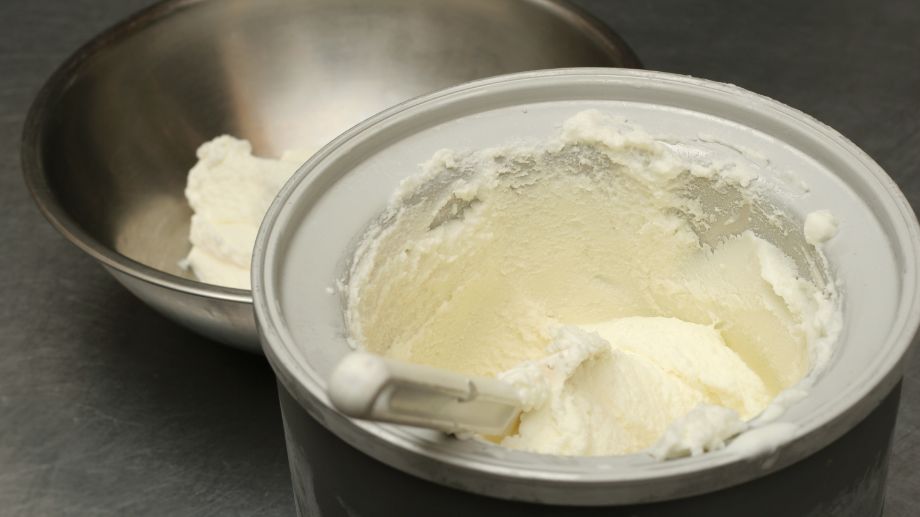You have just made a batch of delicious homemade ice cream but you are unsure how long it will last in the freezer? One downside to homemade ice cream is it doesn’t store as well as commercially produced ice cream.
Store-bought ice cream stays fresh for longer because it usually contains preservatives and/or stabilizers.
So what are the recommendations for keeping homemade ice cream in the freezer?
Homemade ice cream will keep in the freezer for about two weeks if stored in an airtight container. For extra protection, layer plastic wrap over the surface of the ice cream before you seal it shut.
Signs that your ice cream is no longer fresh are a grainy or gooey texture. If your ice cream has a layer of crystals over the top then it is definitely time to throw it away.
Storing your ice cream below approximately -13°F (-25°C) will extend the shelf life of your homemade ice cream significantly. We recommend placing your ice cream at the back of the freezer where the temperature is coolest and most consistent.
Avoid placing your ice cream in the freezer door or leaving your ice cream at room temperature for any length of time. Temperature fluctuations can impact your ice cream's shelf life.
Here we give you the scoop on best practices for storing your homemade ice cream. Keep reading for our top tips on how to keep your ice cream fresher for longer.
Things That Affect How Long Homemade Ice Cream Lasts In Your Freezer
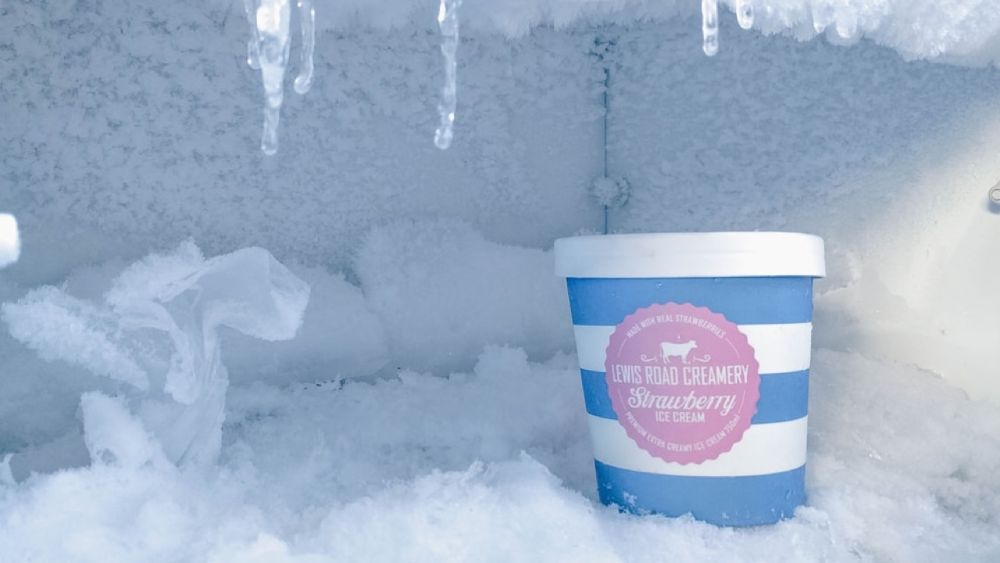
Two weeks is the average time that homemade ice cream will keep in the freezer, but there are a number of factors which can have an impact on your ice creams shelf life.
- Overall Temperature – The optimum temperature for storing ice cream is 0°F (-18°C) or colder. Research has shown that the colder the storage conditions the longer your ice cream will last. So try and keep it as cold as you can.
- Temperature Fluctuations – reduce the number of times you take your ice cream out of the freezer and then re-freeze it. Take it out, scoop out your desired portion and put it straight back in the freezer. Do not let it sit out at room temperature. Minimizing the amount of time it is left at room temperature will increase the shelf life and prevent the growth of harmful bacteria.
- Ingredients – Fat, protein, sweetener, and stabilizer content will impact the shelf life of your ice cream. Milk fat has been shown to reduce ice crystal growth. Whilst sweeteners lower the temperature at which the water in an ice cream mixture starts to freeze.
- Stabilizers – Ice cream that includes stabilizers will last far longer. Guar gum or xantham gum are some great natural plant derived alternatives to chemical stabilizers. You could even try adding egg to your batch.
How Do You Make Homemade Ice Cream Last Longer?
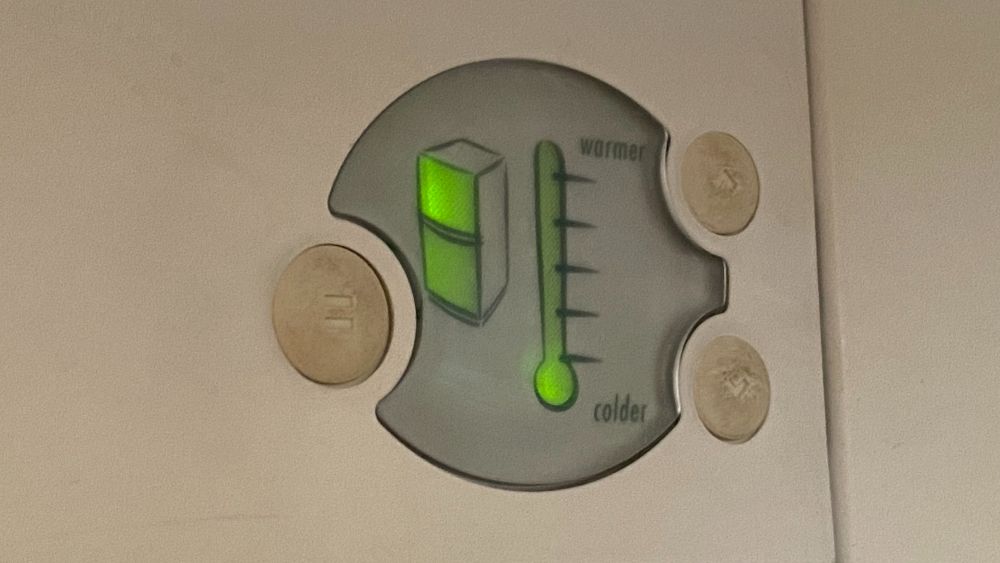
The best way to store your homemade ice cream is by pressing a piece of plastic wrap firmly over the entire surface, and then covering it with a lid. The container should be air-tight.
This will prevent it from getting too icy or picking up other flavors from the freezer. Ice can taste like garlic if left in the freezer too long and the same can happen to your ice cream.
Shallow flat containers are a great choice as they help keep your ice cream an even consistency. Avoid anything compact or boxy.
And of course, make sure your freezer is SUPER cold!
Salt is used in ice in antique ice cream makers to make it extremely cold and freeze the ice. However, this cold will only last so long. Eventually the ice will warm up and so will your ice cream. This is also true for modern ice cream makers that use a frozen outer bucket to freeze the ice cream.
So it's important that as soon as your ice cream is churned and made that you transfer it to the freezer for keeping.
Storing it right at the back of the freezer, where the temperature is coldest and most consistent, will help extend the shelf life of your ice cream.
Avoid storing it on the freezer door, this is the area most likely to experience temperature fluctuation.
Planning an event? Here are our top tips for keeping ice cream frozen at a buffet party or if you're going camping check out our best tips for keeping ice cream frozen in a cooler.
How To Know When Homemade Ice Cream Has Gone Bad
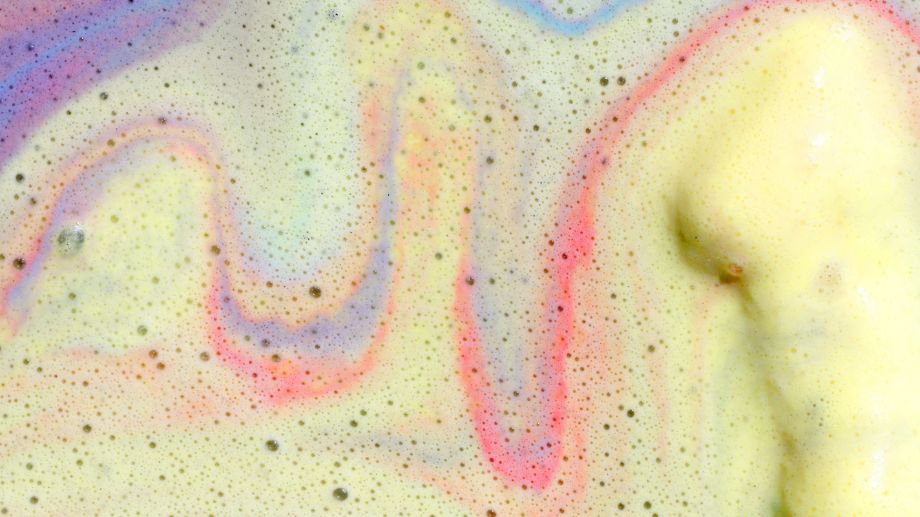
Frozen food expires!
It just takes longer for this process to happen. Homemade ice cream that has been kept in the freezer for too long will have a gooey or icy texture. This is similar to the texture you'll find if you don't churn your ice cream long enough.
This icy texture is referred to as ‘recrystallization’. If your ice cream has a layer of crystals over the top of it, you need to throw it away.
If your ice cream looks fine but the taste is not optimum we would recommend throwing it away. It is not worth the risk.
One of the biggest mistakes when making homemade ice cream is storing it too long and letting it go off. You should eat your homemade ice cream as soon as you make it or within 1-2 weeks. Don't expect it to last a long time.
Can Old Homemade Ice Cream Make You Sick?
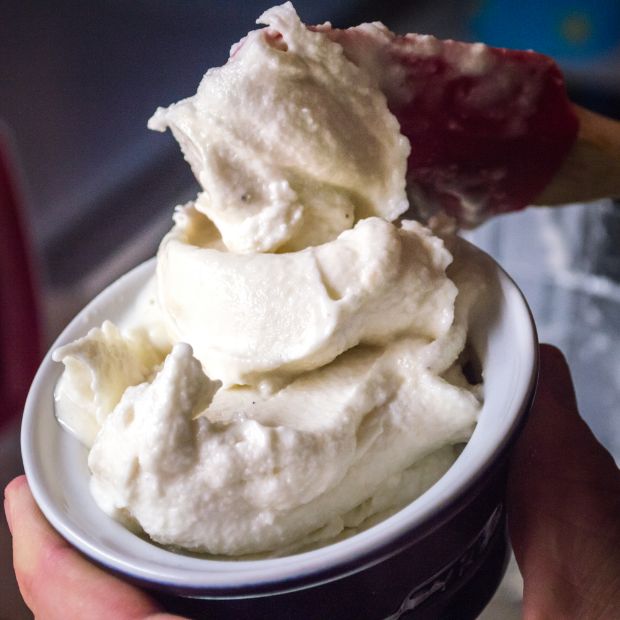
Yes it can. Homemade ice cream could contain harmful bacteria or other food borne illness if improperly stored or left for too long.
Once your ice cream has melted, it won’t be safe to refreeze it. Bacteria like Listeria can thrive in such an environment.
Signs that you have eaten ice cream that is past its shelf life are nausea, vomiting, diarrhea, abdominal cramps, fever, weakness, headaches, and dehydration.
Food poisoning can last anywhere from a day or two to over 10 days in more serious cases.
So please store your ice cream safely!
Summary
Homemade ice cream will typically last about two weeks in the freezer and should be stored at 0°F (-18°C) or colder.
When storing your ice cream press a layer of plastic wrap over the top before sealing it away in an air-tight container and placing it at the back of your freezer.
Do not store ice cream on the freezer door as this area is the most at risk of temperature fluctuation.
Be mindful that two weeks is a guideline, the best way to know if your ice cream is compromised is by checking the top for ice crystal formation. If your ice cream looks gooey or icy then please throw it away.
Eating expired homemade ice cream can make you ill and put you at risk of food poisoning.
There are several ways you can extend the life of your ice cream, such as adding a stabilizer or storing it at very cold temperatures.
Need some more advice? Here we break down how you can deliver ice cream without it melting.

